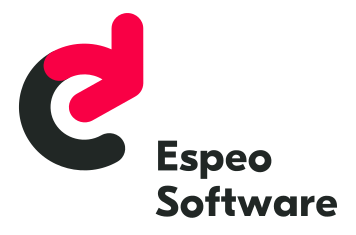Blockchain and artificial intelligence are driving technological innovation worldwide and both have profound implications for the future of business as well as our personal data. How can the two technologies merge? I’ll discuss the opportunities which could arise from decentralized AI.
Before we look at the possible merging of blockchain and AI into decentralized AI, let’s look at the two separately. Let’s look at the benefits of Artificial Intelligence and blockchain.
Artificial intelligence (AI) is a field in computer science dedicated to creating intelligent machines. Also known as machine learning, AI gives machines skills traditionally reserved to humans. Problem solving, speech recognition, planning, and learning are among them.
Meanwhile, blockchain is a decentralized technology which is a global network of computers. A robust platform allows blocks of similar information to be stored over the network.
PwC predicts that by 2030 AI will add up to $15.7 trillion to the world economy, and as a result, global GDP will rise by 14%. According to Gartner’s prediction, business value added by blockchain technology will increase to $3.1 trillion by the same year. Currently, the cryptocurrency sector makes the most use of blockchain tech. So, is the integration of blockchain and AI possible? Can both merge into one and enter other sectors? Actually, that’s already happening and some businesses are beginning to see the potential of integrating blockchain and AI.
Advantages of blockchain technology
Here are some of the advantages of blockchain technology:
- Blockchain is decentralized. It allows data to be shared without a central unit. This keeps transactions on a blockchain verifiable and processable independent of a central force.
- Blockchain is durable and consistent due to its decentralized nature. It can resist malicious attacks on its systems because it does not have a central point vulnerable to attack.
- Information, timelines, and authenticity supplied by blockchain technology are all accurate.
Benefits of Artificial Intelligence (AI)
AI, or machine intelligence, has a lower error rate compared to humans when coding. As a result, AI offers a greater level of accuracy, speed and precision.
- AI is totally logical as it has no emotions and thus makes error-free rational decisions.
- Machines don’t get tired and can thrive in hazardous conditions. This enables them to carry out dangerous tasks, such as space exploration, or even mining.
- Trusting AI with data analysis is the best decision any company can make. AI can easily calculate unstructured data, and give results in real-time, ensuring accuracy in data analytics.
Previous collaboration between blockchain and AI
There’s been notable integration between AI and blockchain. Some examples of this include the Singularity.Net blockchain and AI program, which was created to enhance smart contract testing. Supply chain firm, Nahame has also incorporated blockchain technology and AI to help companies with auditing. There are some plans by a peer-to-peer car rental company, which have been made public, to produce a fleet of self driving cars on blockchain technology.
Decentralized AI – where AI and blockchain could intersect
The best way to use the two of the biggest technologies out there today is by looking to capitalize on one’s strength to aid the other.
Data protection
Artificial intelligence largely depends on our data and uses it to improve itself through machine learning. What’s particularly relevant to AI is the gathering of data about human interactions and other details. Blockchain is a technology that allows encryption of data storage on a decentralized system, and it runs a totally secured and protected database only authorized users can access. So when we integrate blockchain and AI, it means we have a protected decentralized AI system for sensitive data such as financial or even medical data. Therefore, blockchain technology is a great security advantage.
Let’s take a look at Spotify – it uses users’ data to recommend music based on their recent searches and preferences. Most of the time we aren’t concerned about the information as it isn’t particularly sensitive. However, when it comes to our sensitive information stored in the cloud of a company, we would be more concerned about privacy and the guarantee of that privacy.
Ensuring security
As a centralized system running on a single processor, hackers or malware can infiltrate an AI system and alter its instructions. With blockchain though, before any information is accepted and processed on a blockchain platform, it must go through several nodes or phases of the network on the system. It becomes more difficult to hack any blockchain-based technology when it has more nodes on its network. Although not impossible, it would be far more difficult to hack a blockchain-based, decentralized AI platform.
Trustworthiness
There is greater trust in the system. In order to have credibility, a system must be trustworthy. Blockchain is a more transparent technology than a closed AI system. Blockchains protect data through encryption — only authorized users can access it. This makes it impossible for unauthorized parties to view anything.
In the case of blockchain application in the healthcare sector, patients don’t want their medical information to be accessible to any unauthorized viewers. Medical information remains encrypted to prevent unauthorized third parties from accessing it. Keeping medical information on a blockchain would also allow healthcare providers to easily access patients’ files so they can provide medical aid in case of an emergency. Adding increased performance AI will bring storage to the blockchain by making it easier to access unstructured data.
Benefits of Artificial Intelligence & blockchain in the long run
There are many benefits businesses can gain from integrating blockchain with AI. Porsche automobile in partnership with XAIN AG is already working on decentralized AI applications in its advanced vehicles. JD.com, a leader in developing AI-based applications, has already started using this integration to build decentralized business applications. So it’s worth considering blockchain and AI as integrated technology. It’s not a problem if you already use blockchain or just AI in your business. You can integrate either technology through your existing website API.
Here are some benefits of Artificial Intelligence merging with blockchain:
Decentralized Intelligence
This is an obvious result of the technology integration. Blockchain is a decentralized system while AI is an intelligent system. It would enable business organizations to set up a blockchain-based architecture that allows a combination of AI design. This could be a peer-to-peer connection that has an image recognition feature or language processing.
Energy saving and cost efficient IT architecture
A 2016 report from Deloitte estimated that the annual cost of authenticating transactions on a blockchain is $600 million, most of which goes into mining operations. An AI-integrated blockchain will help organizations reduce their energy consumption. Since AI can predict and speedily calculate data, it would also make it possible for cryptocurrency miners to know when they are performing a less important transaction. This would also allow enterprises to execute transactions faster.
In fact, as AI becomes more developed, and after the integration of AI and blockchain technology becomes more common, AI may take over the mining process on blockchains. Given the fact that AI learns and adapts to its environment, combined with blockchain, there’s no doubt that it will learn the process and the architecture of the blockchain network.
Flexible AI
AI integration with blockchain will pave the way for the development of an artificial general intelligence (AGI) platform. The blockchain model can create a distributed specimen for the development of an AGI.
The integration of blockchain and AI has yet to take off fully. Combining the two technologies into decentralized AI has deep potential to use data in novel ways. A successful integration of both technologies will allow quicker and smoother data management, verification of transactions, identification of illegitimate documents, etc. Therefore, if you’re contemplating the integration of both technologies for your business, don’t hesitate, do it!

